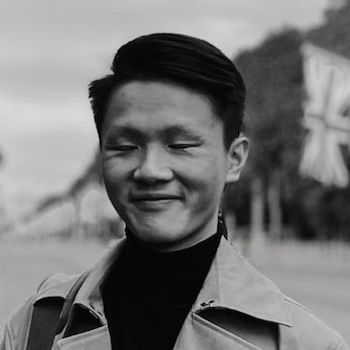
Why Hong Kong Needed a Second National Security Law
Last month, the Hong Kong government passed the city’s second national security law, commonly known as Article 23. This comes after the original security law passed by the Chinese government in 2020, which quelled the ongoing unrest taking place at the time. But why does Hong Kong need this second security law?
In essence, it comes down to legitimacy. For context, Hong Kong came under Chinese sovereignty when Britain handed the territory over in 1997 under a unique constitutional arrangement known as “one country, two systems.” This arrangement meant that although Hong Kong would become a part of China, it was to remain an autonomous city-state with its government, economy, and legal system segregated from the mainland. Article 23 of its mini-constitution, the Basic Law, stipulates that the Hong Kong government would enact its own national security legislation under its own rights and autonomous legislative process.
This was first attempted in 2003 when the first government after the handover introduced such a bill to the Legislative Council, which is Hong Kong’s Parliament. It was met with fierce opposition both within the government and across civil society, with 500,000 people taking to the streets to protest against the bill. Eventually, the Liberal Party withdrew from the cabinet, and the government lost its legislative majority, which caused the bill to be withdrawn. This also resulted in the resignation of the then-security minister and the collapse of the government shortly after.
Heeding this precedent, successive governments in Hong Kong have shelved this task even when under pressure from Beijing. Nevertheless, tensions have consistently been on the rise across the border as Xi Jinping leads China down a more totalitarian path, and Hong Kong increasingly feels like a cornered enclave for freedom.
The two locomotives eventually ended up crashing into one another in 2019 when the Hong Kong government introduced an extradition bill that would allow Hong Kong residents to be extradited and tried in Chinese courts. Coupled with the frustration of the unfulfilled promise of universal suffrage, millions of Hong Kongers took to the streets to demand full democratic reforms that China duly promised at the handover and in the Basic Law.
This sparked around a year of constant unrest in the city, with protestors clashing with authorities almost every week in every district. In November of that year, Hong Kong residents took matters to the ballot box and empowered the Democrats to sweep through 17 out of 18 district councils, leaving the pro-Beijing faction hanging on to the remaining one local authority. This caused great panic in the Hong Kong and Chinese governments as a general election was due to be held in just a few months. If the same wipe-out took place in the Legislative Council, this could result in a democratic government, legislature, and local authorities in an autonomous city-state that is already heavily disgruntled against China.
In a panic, the Chinese government decided to unilaterally impose a National Security Law on Hong Kong and marched its security forces into the city to enforce it. The law essentially repealed the freedoms and rights that underpinned the city’s civil society and resulted in the mass arrest of dissidents, journalists, and the entire parliamentary opposition. This also came with a further package of electoral and educational reforms that aimed to cultivate a more patriotic Hong Kong.
A new government was installed with John Lee Ka-chiu, a former police officer and Security Minister, becoming leader of the city after claiming victory over a one-man electoral race. His government, somewhat unsurprisingly, includes the former Police Chief, Chris Tang Ping-keung, who was appointed to be the new Security Minister, and Regina Ip Lau Suk-yee, the original champion of Article 23 in 2003, was appointed to be the Chair of the Cabinet, otherwise known as the Executive Council.
Despite the enforced peace, both the Hong Kong government and Beijing still feel insecure and challenged across the board. Domestically, Hong Kong residents have undertaken a massive exodus out of the city to countries that have offered an immigration pathway like the UK, Australia, and Canada. Internationally, the National Security Law has routinely been challenged not only by the UK as the co-signatory of the Sino-British Joint Declaration but also by bodies like the United Nations, which have called for the law to be repealed.
At its heart, China is still committed to maintaining the facade of “one country, two systems” and wishes to avoid the appearance of direct rule from Beijing and instead would prefer the narrative of an increasingly patriotic Hong Kong willingly integrating with its Chinese motherland. Therefore, to strengthen legitimacy, Article 23 must be enacted both to demonstrate Hong Kong’s redemption in the Chinese family and that the original Chinese-imposed law could take a back seat while its local counterpart could be deployed more righteously.
Although Hong Kong came under Chinese sovereignty over 27 years ago, China never saw it as a territory in which it could meaningfully exercise its power in. To an extent, that was by design. This is why China is essentially treating Hong Kong like a newly acquired territory that needs to be colonized and transformed into a proper part of China. The passage of Article 23, therefore, not only provides the enhanced instrument towards that end but also fulfills the narrative that Hong Kong has now truly returned to the motherland and is joined together with China as one.
